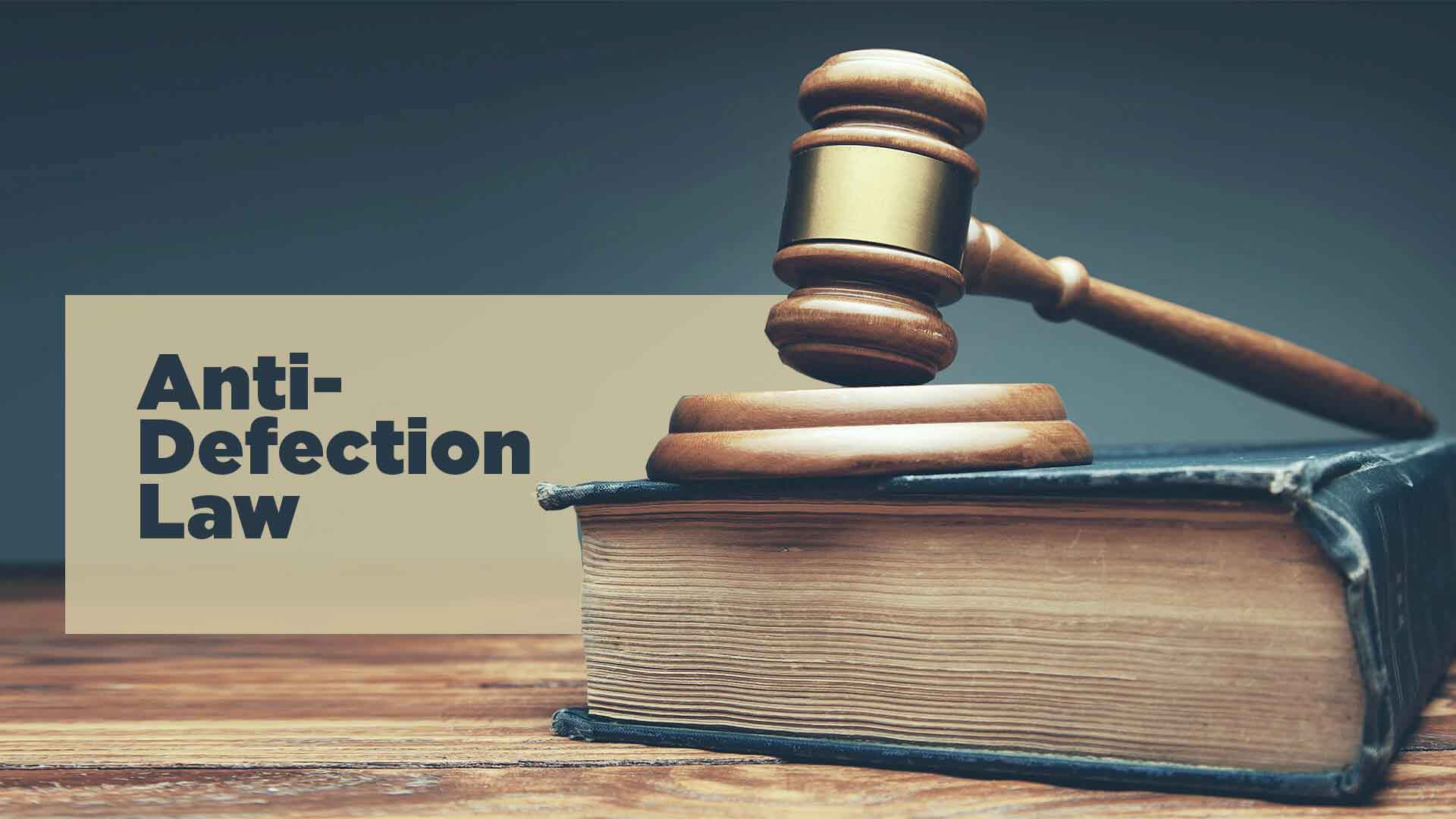On February 17, the Election Commission of India (ECI) gave Maharashtra Chief Minister Eknath Shinde’s faction the name ‘Shiv Sena’ and the party’s Bow and Arrow symbol, effectively recognising it as the original party founded by Babasaheb Thackeray. Anti-defection legislation is becoming more important.

Background: The most dramatic and unique political crisis
- The political crisis in Maharashtra began last year when a group of 40 of the 55 Sena MLAs walked out of the Maha Vikas Aghadi (MVA) alliance led by Mr. Shinde, causing a schism within the party.
- Fight for the Party Name and Symbol: Both the Uddhav Thackeray and Shinde camps claimed ownership of the party name and symbol, claiming to represent the true Shiv Sena.
- The ECI stated that its decision was based on a majority test: it stated that the group of MLAs supporting the Shinde faction received nearly 76% of the votes cast for the 55 Shiv Sena candidates who won in the 2019 Maharashtra Assembly elections, while the Uddhav Thackeray faction received 23.5% of the votes cast.
What exactly is anti-defection legislation?
- The tenth schedule is as follows: The Anti-Defection Law, which is part of the Constitution’s Tenth Schedule, punishes MPs and MLAs who defect from their party by removing them from the legislature.
- The speaker has the upper hand: It empowers the Speaker of the House to decide the outcome of defection proceedings.
- The 52nd Amendment Act of 1985: When Rajiv Gandhi was Prime Minister, it was added to the Constitution by the Fifty-Second (Amendment) Act of 1985. The legislation applies to both Parliament and state legislatures.
What was the point of having this law in the first place?
Vies in your favour
- Defection was identified as a problem that needed to be addressed: Defections create instability and lead to the fall of governments, which can have a negative impact on the country’s political and economic stability.
- The law contributes to the stability of the party system: The law helps to stabilise party systems by consolidating control of party leadership rather than relying on ideological cohesion or constituent legislator ownership.
Opposition to it
- The law would restrict representatives’ freedom of expression: Some people feared that the law would restrict free speech and the free expression of opinion by members of the legislature who are elected by the people.
- Undermines the representative system of democracy: By framing democracy as a contest between factions rather than a system of representation and accountability, the law effectively eliminates the representative system of democracy in India.
- Limiting legislators’ ability: The law consolidates power in the hands of the party leadership, potentially limiting individual legislators’ ability to represent the interests of their constituents.
How is the law doing today?
- Recent events demonstrate the need for the law to be tightened: The types of defections that existed prior to the passage of this law no longer exist. However, recent events demonstrate that this law needs to be strengthened.
- The third paragraph of the tenth schedule was removed: An earlier tightening was accomplished by eliminating a split, namely paragraph three of the Tenth Schedule of the Constitution. It had stated that if a party splits and one-third of the legislators join the breakaway group, they will not be disqualified. As a result, splitting was a defence against disqualification.
- There is no authoritative interpretation of the law: There is a very disturbing trend of interpreting paragraph four (decision on questions of disqualification based on defection) in a specific way because there is no authoritative declaration of law from the Supreme Court on the exact application of it.
- There is currently no timeline set for the Speaker to determine the issue in the 10th Schedule, and the purpose of this anti-defection law is defeated.
@the end
In a democracy, people are the primary stakeholders; parties are merely institutional intermediaries. Democracy requires stable parties, but controlling legislators eliminates their role as representatives. The need of the hour is to close the system’s loopholes because the continuous cycle of instability harms the people, who are the primary stakeholders in a democracy and suffer the most.
Source: https://prsindia.org/articles-by-prs-team/the-absurdity-of-the-anti-defection-law
